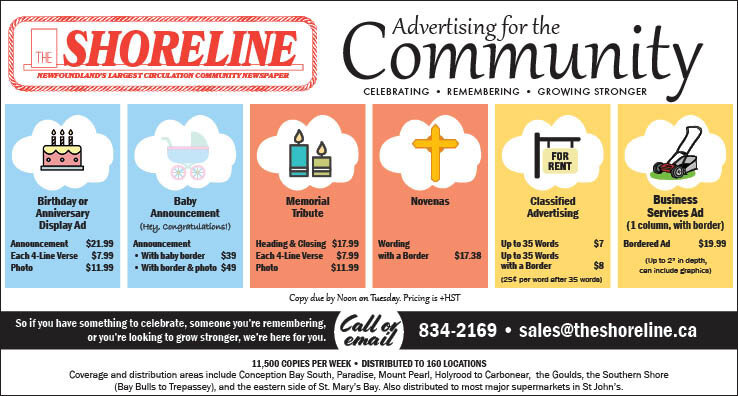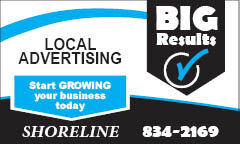By Mark Squibb/March 17, 2022
An issue that councillor Jason Sullivan raised in 2020 as an election issue before his return to council appears to have been put to bed, by Sullivan.
During a special meeting February 28, council unanimously voted to remove a number of businesses from the tax roll that had not registered as businesses with the Town or the provincial Registry of Companies and Deeds. The move means the businesses can carry on operating without paying taxes to the Town.
The motion was made by councillor Sullivan.
As part of the motion, council will cancel all outstanding balances for 2020, 2021, and 2022 to those same businesses, which total seven.
In a second motion by Sullivan, council also voted unanimously to set criteria for adding businesses to the tax roll. Under the new rule, the Town will no longer add businesses to the tax roll unless they have been registered with the provincial Registry of Deeds.
Back in 2020, the former council increased the home-based business tax from $375 to $450, hitting a number of business owners who had previously not been taxed.
Among those affected were people selling crafts, baked goods, and other homemade items through social media platforms.
The ‘craft tax,’ as it became known, struck a nerve with crafters, some of whom showed up in the council chambers to argue with the former council face-to-face.
Despite the backlash, the tax remained.
In Budget 2022, the first budget to be passed by the new council, the Home-Based Business Tax as it is officially known, was broken down into three separate categories to appease critics.
The first category was light-industry home-based businesses and includes handmade articles such as clothing and crafts. Those folks are now taxed at $150 annually. Medium industry home-based businesses, which include studios, salons, spas, photographers, private day cares, and pet groomers who are operating from their homes will be taxed $300 annually. The final category targets larger operations that don’t fit in either of the first two categories. Those folks are taxed $450 annually.
Sullivan voted against the 2022 Budget as he had promised that he would not support the craft tax and would instead work to abolish it.
In a 2020 interview with the Irish Loop Post, Sullivan, who was not on council at the time, said the tax hit his family personally, as his wife Julie, who sells Mary Kay products online and continues to do so, was hit with the tax. At the time, Sullivan claimed the couple fought the tax, and never had to pay it. He urged other folks to do the same.
At a meeting this past February 16, Sullivan made a motion to abolish the tax. He argued the tax is unfair as some home-based crafters are being hit, while others are not. He said the Town’s manner of investigation into identifying home-based business operators boiled down to scrolling through social media to see who was advertising crafts for sale.
“I believe the fairest way is the way that it was always done for 30 years before this was implemented — if you have a sign on your property, or you’re registered with the province as a business, and registered with CRA as well, to me those are legitimate businesses,” said Sullivan. “But these little hobbies or side hustles, in the broad scheme of things, these are things that are nice to have in the community. It’s nice to not have to drive far down the road to pick up a birthday cake for your kid or a pair of socks for your grandmother for Christmas, or whatever the case may be.”
He added that Witless Bay doesn’t have such a tax.
Mayor Neil O’ Brien, who voted in favour of the new tax as presented in the budget, said he now disagreed with the tax.
“When this was passed in the budget, it was my view then that we were looking at people who were virtually advertising, we weren’t going after the small people,” said O’Brien. “What I failed to realize then, and what I realize now, is that we have no mechanism in place to support taxing someone or not taxing them. We don’t have any standards, so we can’t give clear direction to the people on who is going to be taxed and who is not going to be taxed. So, we have people calling and saying, ‘I’m selling this, but across the road, they’re not.’ And we can’t give them an explanation. All we can say is that in the past someone saw it on Facebook and it made it to council and then went to you in an envelope. If we don’t have a mechanism in place, I have to support what council Sullivan said and just abolish it. We can’t police it, and we have no way to enforce it.”
The discussion went on for a few more minutes, with members noting the tax was inherited from the previous council, discussing online versus traditional advertising, and arguing whether a business’s CRA status is relevant.
“The biggest problem, when we were trying to make our decision, was fairness to all other businesses,” said councillor Shannon O’ Driscoll. “Like, how do we decide, because we don’t know who a registered business was or not, who has to pay it and who does not? That was the biggest issue and trying to be fair across the board. So, that’s why we divided it and decreased the tax amount significantly. That was our main reason we didn’t abolish it, was to be fair.”
There was further discussion on how exactly to phrase the motion, and which taxes to reduce, and whether someone operating a home-based dog grooming business should be taxed while someone selling cupcakes through Facebook should not.
“Basically, take the sign off the side of your house if you don’t want to be taxed,” summarized Sullivan. “That was the way it was before. That’s why you’re paying taxes, because you have a big sign saying that you’re grooming dogs.”
The motion council finally landed on was to abolish taxes for unregistered business, including light industry businesses that are not registered with the Province.
Voting for the motion was councillor Sullivan and Mayor O’Brien. Against the motion were Deputy Mayor O’Brien and both O’Driscolls.
Sullivan then served notice that he intended to raise a motion at the next public meeting to review the tax. That set the stage for the February 28 vote that saw the seven businesses affected by the so-called ‘Craft Tax’ removed from the tax roll.
Subsequent to that, at a council meeting held Tuesday, March 14, council voted to remove another business from the tax roll and cancel its outstanding business taxes as well. That business was described as a Mary Kay Direct Seller business. Councillor Sullivan didn’t vote on that motion, declaring a conflict of interest, explaining the owner of the business is a direct family member.

